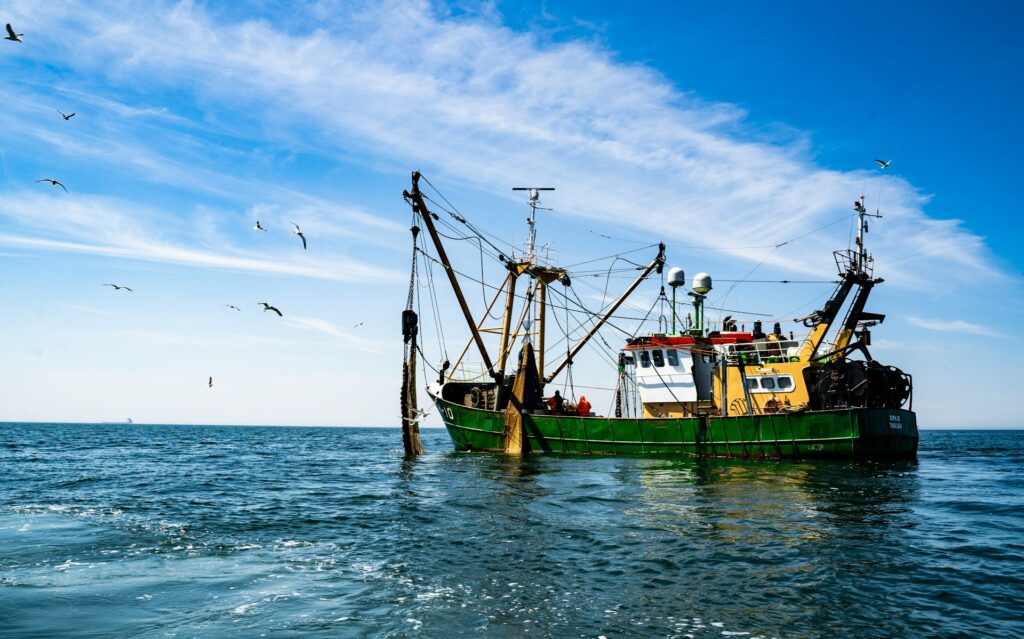The World Trade Organization (WTO) implemented an agreement on prohibited fishing subsidies on Monday.
Among other nations, Mexico, India, Thailand, and Indonesia have not signed the agreement.
Each year, governments spend approximately US$22 billion on harmful subsidies that contribute to overfishing and the depletion of marine resources.
Prohibited fishing subsidies
WTO Director-General Ngozi Okonjo-Iweala said that with the implementation of this Agreement, these expenditures will decrease, thereby mitigating the damage they cause.
She also said that WTO Members will have the opportunity to redirect these resources towards more sustainable fisheries management, supporting practices that protect marine ecosystems, strengthen livelihoods, and improve food security.
This transformation is particularly important for the more than 260 million people worldwide who depend on marine fisheries for their livelihoods.
Signed by 111 WTO Members, the Agreement limits subsidies for illegal fishing activities, which deplete between 11 and 26 million tons of fish per year, according to the Food and Agriculture Organization of the United Nations (FAO), representing 20% of the global fish catch.
Furthermore, this activity not only punishes legal fishermen, but also causes profound economic damage. The estimated global cost amounts to $50 billion each year.
The Agreement also bans subsidies for overexploited stocks. According to the FAO, by 2025 these will represent 35% of the species assessed. Financial support is only allowed when it is used to rebuild depleted stocks.
Multilateral agreement
This is the first agreement to enter into force at the WTO since 2017. It also marks a milestone by becoming the organization’s first multilateral agreement focused on environmental sustainability.
What subsidies are prohibited under the Agreement?
-
Subsidies that contribute to illegal, unreported, and unregulated (IUU) fishing
The Agreement prohibits subsidies to vessels and operators engaged in IUU fishing. The restriction also applies when they participate in activities related to this illegal practice.
In addition, the prohibition takes effect if there is a determination of IUU fishing. This determination may be issued by a coastal member, a flag state, or a regional fisheries management organization. It may even arise from international bodies created to conserve and manage specific species.
-
Subsidies related to overexploited stocks
The Agreement prohibits subsidies for fishing on overexploited stocks. It also prohibits support for related activities, provided that this is determined by a coastal member or a regional fisheries management organization within its jurisdiction.
However, the rule provides for exceptions. Subsidies may be maintained if they are intended to rebuild the stock to a biologically sustainable level. They are also permitted when measures are in place to ensure the recovery of resources.
-
Subsidies for fishing or fishing-related activities in unregulated high seas
The Agreement prohibits subsidies for fishing in areas outside the jurisdiction of a coastal member or non-coastal member. The restriction also applies to activities outside the scope of a regional fisheries management organization.
In other words, the ban covers areas and species that are not under the jurisdiction of a relevant RFMO/A. The aim is to close legal loopholes that previously allowed subsidies in areas without clear regulation.
-
Other disciplines and provisions
Other disciplines require members to act with particular caution. They also demand restraint when granting subsidies to vessels that do not fly their flag.
In addition, the rules apply when it comes to supporting fishing in populations whose status is uncertain. The aim is to avoid risks to species for which there is insufficient data on their sustainability.

